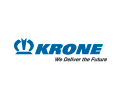The German Parliament has voted to extend the existing exemption from road usercharges for clean trucks, powered by CNG, LNG and electricity, until 2023.
 Welcoming the vote as a sustainable and cost effective way to keep advancing the number of green trucks on German and European roads, and to help transport companies recover from the economic impacts of COVID-19, the International Road Transport Union (IRU) is calling on all governments around the world to follow this excellent example of how to drive a green economic recovery.
Welcoming the vote as a sustainable and cost effective way to keep advancing the number of green trucks on German and European roads, and to help transport companies recover from the economic impacts of COVID-19, the International Road Transport Union (IRU) is calling on all governments around the world to follow this excellent example of how to drive a green economic recovery.
The road transport industry is both an important CO2 contributor in the logistics chain and a principle enabler of decarbonisation innovation. Over 90 per cent of the value of goods is moved by road every day. Operators therefore need to be more strongly supported to accelerate their investments in new and cleaner technologies, particularly in the current difficult economic situation.
With the upfront investment being the biggest obstacle – an LNG truck costs between €20,000 and €30,000 more than a comparable diesel version, road toll exemptions make the transition to cleaner trucks more feasible, as the incentive helps offset higher upfront costs.
IRU’s Advocacy Director, Matthias Maedge, said: “Any alternative to conventional diesel technology comes with a cost, and this is particularly true for trucks or coaches used over longer distances where alternative options remain limited. The German model is a pragmatic concrete measure supporting the decarbonisation of the sector, which should be replicated by governments worldwide.”
Gas and electric trucks have enjoyed an exemption from road user charges in Germany and have been subsidised since 2019. This has led to nearly 1,900 new registrations by road transport operators, who would have otherwise invested in new diesel trucks. Of these, LNG accounted for 1,421 trucks and CNG for 430 trucks. This helped reduce CO2 emissions by 24,000 t (based on 100,000 km mileage p.a./truck)


.gif?rand=4656)










